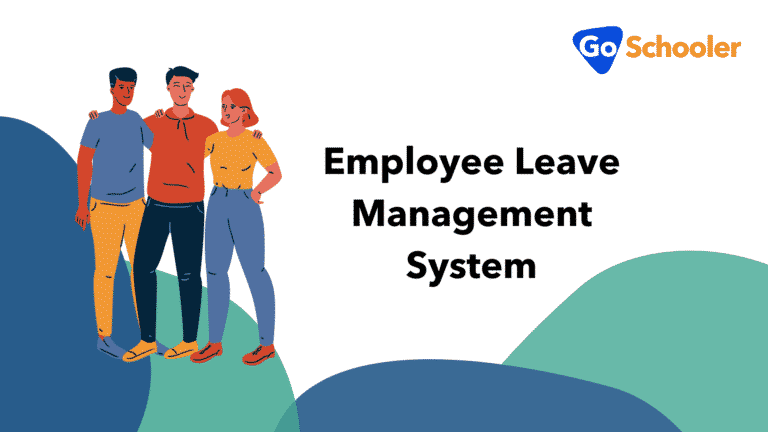What are the advantages of online classes? What benefits can online courses offer to students, teachers, and parents? Are there any disadvantages to virtual courses?
Schools, colleges, and universities are reopening soon. In fact, some already started with face-to-face classes early this August. Many others are planning to welcome back students from late August until early September.
The public has divided opinions on virtual classes and the benefits they could offer. So, we’re here to shed light on the advantages of online classes for everyone involved. And to be fair, we’re listing the disadvantages of online education as well.
Advantages of Online Classes
Like any other method of teaching, teaching online does have certain advantages. Understanding its effects on everyone involved in students’ learning can help schools make a more appropriate decision. What are the benefits of online classes?
1. Online Classes Get Better Attendance
It takes less time and energy to show up to an online class, which is why online classes get better attendance. Your location doesn’t matter. As long as you have an internet connection, you can take part in synchronous classes. It takes less time to prepare for an online class too.
Many students need less physical and mental preparation to be in an online class than in an on-campus one. You can sleep in and log in to your class on the dot. If you didn’t have enough time before class started, you can attend your early morning class while eating your breakfast and sipping your tea. You won’t have to spend long hours commuting to and from your school.
2. Online Classes Are Safer
Schools and universities are reporting lower on-campus attendance for physical classes. This just goes to show that while many are afraid of falling behind in classes, many more are afraid of contracting the deadly virus. And rightfully so! Though the country is seeing fewer COVID-19 cases, tens of thousands are still being infected by the day.
An online course can have as many students in a class. It won’t have the physical boundaries of a traditional classroom. You can learn your lessons and get your education without putting yourself in harm’s way. You can attend your classes without being in an actual classroom and risking close contact with other students.
3. Online Classes Are More Flexible
Online classes can be synchronous or asynchronous. While the former is flexible in its own right, the latter provides more flexibility for both students and teachers.
With asynchronous classes, students may read their lessons in their own time and at their own pace. They won’t need to attend a class simultaneously as all other students of the course. They can spend more time at home with their family and study when it’s most convenient for them. Instructors may conduct asynchronous online exams too.
Online classes are also a great choice for those who are already working. Those already in the workforce just need to find the time in their busy schedules to attend their classes.
4. Online Classes Are More Comfortable
Studying in the comforts of your own home has both advantages and disadvantages. Let’s talk about the benefits first.
An online class allows students to study wherever they feel most comfortable. Some students are even given the option to create their own studying nooks at home.
Students can study right next to their siblings or parents who can provide them with strong emotional support. Parents can safeguard their children’s online activities. Students can readily ask a household member’s help when their teachers aren’t available. Parents and family members can get involved in a student’s academic progress.
5. Online Classes Allow Students to Pursue Hobbies and Careers
There are so many different classes you can take online in various fields of study. Online schools aren’t limited to just general primary and secondary education. Many online courses teach vocational skills and technical knowledge.
People from different walks of life from all over the world can have the opportunity to attend free and paid classes online. Even those living abroad can get skill certified. You can meet different people and learn about interesting cultures from their own countries. Online classes can introduce you to the global market and encourage you to experience and pursue professional relations.
There are limitless possibilities for the courses you can take. You can learn cooking, computer programming, literature, HR skills, graphic design, international relations, business management, and many others from just online classes. The skills you develop and learn in online classes are a great stepping stone into remote jobs, work-from-home positions, and even freelance gigs.
6. Online Classes Teaches Self-Discipline and Time Management
One important advantage of online studies is that it teaches students self-discipline. Anyone who wishes to graduate or get certified needs to be disciplined enough to stick to a schedule. They need to attend classes, submit deliverables, study educational material, and show up for exams and presentations. Online classes require a degree of self-discipline that is useful for any student who wants to hold a stable livelihood in the future.
It’s challenging to juggle online classes with work, house chores, and other responsibilities. If you’re a working student, you can’t expect your boss to understand your consistent underperformance just because you’re also studying. You can’t expect your professor to let your negligence slide just because you’re also working. And you definitely can’t expect yourself to stay healthy when you’re physically tired and mentally drained all the time.
Online classes can help you manage your time and schedule wisely. The flexibility and convenience of online classes can help you make room for your other responsibilities.
7. Online Classes Can Be Less Expensive
To be clear, online classes can be less expensive, but they can also be more expensive. How so? Online classes have multifaceted financial effects on students, teachers, parents, and schools as a whole. Most people think that online classes are less expensive than face-to-face classes all the time, but this isn’t necessarily true.
For example, online classes may be cheaper for public school students and parents who already have personal computers and internet connections at home. However, a private school may increase tuition fees to cater to students who wish to continue their studies online.
Online education is a more cost-efficient studying method for those who live far away as they save on commute time, gas, and transport money. Parents may not have to worry about giving their children some pocket money for school. They just have to focus on providing them with whatever they need for their online classes.
Most schools weren’t able to maintain or increase their enrollment rates during the pandemic. Switching to online classes and dealing with decreasing enrollment rates at the same time has an effect on the school budget. It could mean less budget to hire more competent staff. As you can see, there are many factors that can affect the cost of schooling for every participant in a school environment.
8. Online Classes Improve Communication
Emails, video conferencing, and other forms of digital communication are the primary ways businesses and employees interact with one another. Online classes can prepare students for these types of correspondence.
Communicating via the written word is considered more complicated than verbal communication. This is because we don’t have as many non-verbal cues like facial expressions, volume, emotions, or gestures to help us decode tones and messages. Emojis and smileys can definitely help relay emotions, but we can’t liberally use these in professional settings, can we?
Students can start learning about proper conduct and professional correspondence in online classes. Professors can train students in the art of online presentations. Students can learn how to be convincing through written texts and how to command a virtual classroom in a presentation.
4 Disadvantages of Online Learning
1. Virtual Classes Can Be More Expensive
It’s common for people to think that online education is cheaper to deliver. In reality, however, online classes cost more than traditional classes in a typical setting. School administrators report that it’s more expensive to develop learning materials, content, assessment tools, and most components of online courses. The solution? Get more enrollees.
Increasing school admissions is one way to decrease the cost of online courses per student. It’s the most crucial among all other factors.
Online admissions, marketing automation, and referral programs are just some ways you can increase admissions in your school. Using comprehensive school management systems with customizable subscription plans like GoSchooler can also help lower the costs of running and switching over to virtual school management.
2. Teachers Are More Stressed
The flexibility of online classes can be a student’s downfall. Without motivation, a student attending modular or asynchronous classes may not study enough, if at all. Instead of being helpful, their newfound independence could be the most significant threat to their studies.
On top of a teacher’s many school-related responsibilities, they have to look out for their students’ emotional, mental, and physical well-being. But with online classes, it would fall on the hands of a parent to motivate, discipline, and teach their child when they’re lost. The problem is that parents may be too busy or too tired to guide a demotivated child.
Teachers have been dealing with heavier workloads since this pandemic began. And it may seem unfair for parents to leave all the work to teachers. However, the reality is that student-teacher interaction is at an all-time high in the past year or so. Teachers have made themselves readily available at all times, even during off-work hours and weekends, to extend help to students who are struggling with their studies.
3. Students May Be Tempted to Cheat
Without a teacher to look over their shoulders, students may be tempted to cheat on assignments and exams. Online exam portals can help solve this problem.
Exam management tools can help teachers conduct cheat-free exams. With the child’s consent, an exam proctor may have access to a student’s webcam during the exam and view their screens to prevent cheating. Some exam portals have anti-cheating features that can lock out exam takers with suspicious browsing activities too.
4. Online Classes Require Internet Connection
Unlike face-to-face classes, synchronous online classes require stable internet connections for students to keep up with their peers. This is probably one of the biggest disadvantages of virtual classes.
There are government efforts to make the internet more accessible to the public, however, the current state of internet connectivity in India is the biggest hindrance to online classes. Students who don’t have internet connections may feel left out by their peers who can keep pace with their online education.
FAQs
How do online classes help students?
How to improve online classes?
Conclusion
We hope you were able to understand the advantages of online classes. Some of the best schools out there will prioritize the safety of their students above anything else. Though there are disadvantages, it’s easy to see why schools choose to switch to online classes while we’re still dealing with the pandemic.
Students will need to have enough determination and self-discipline to power through online education in these trying times. Parents will need to provide their children with physical, emotional, mental, and financial support to help them succeed. Educators will need enough compassion for the students to give them freedom, guidance, and quality education.
Sure, online classes aren’t perfect, but they’re a new normal. And like any other new normal, the sooner we can get used to them, the better. Though schools are already reopening, and we’re looking forward to getting back to school, online classes will remain a strong and valuable alternative to face-to-face classes.







